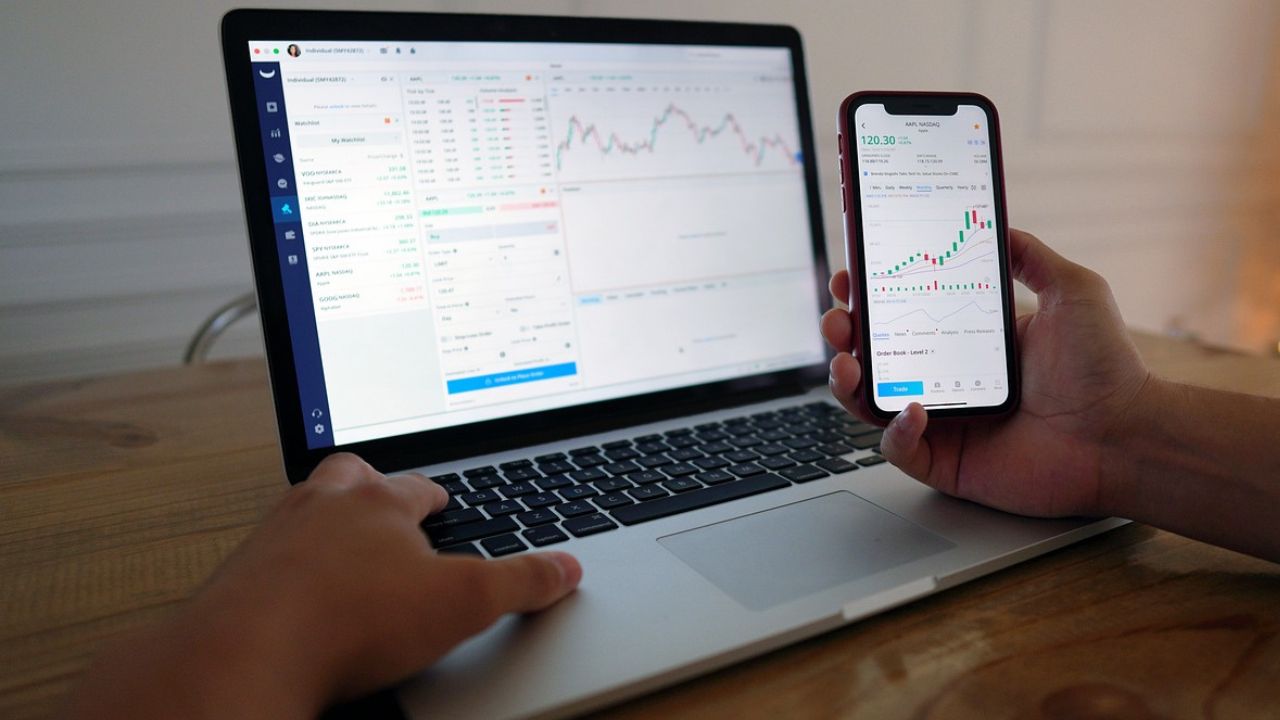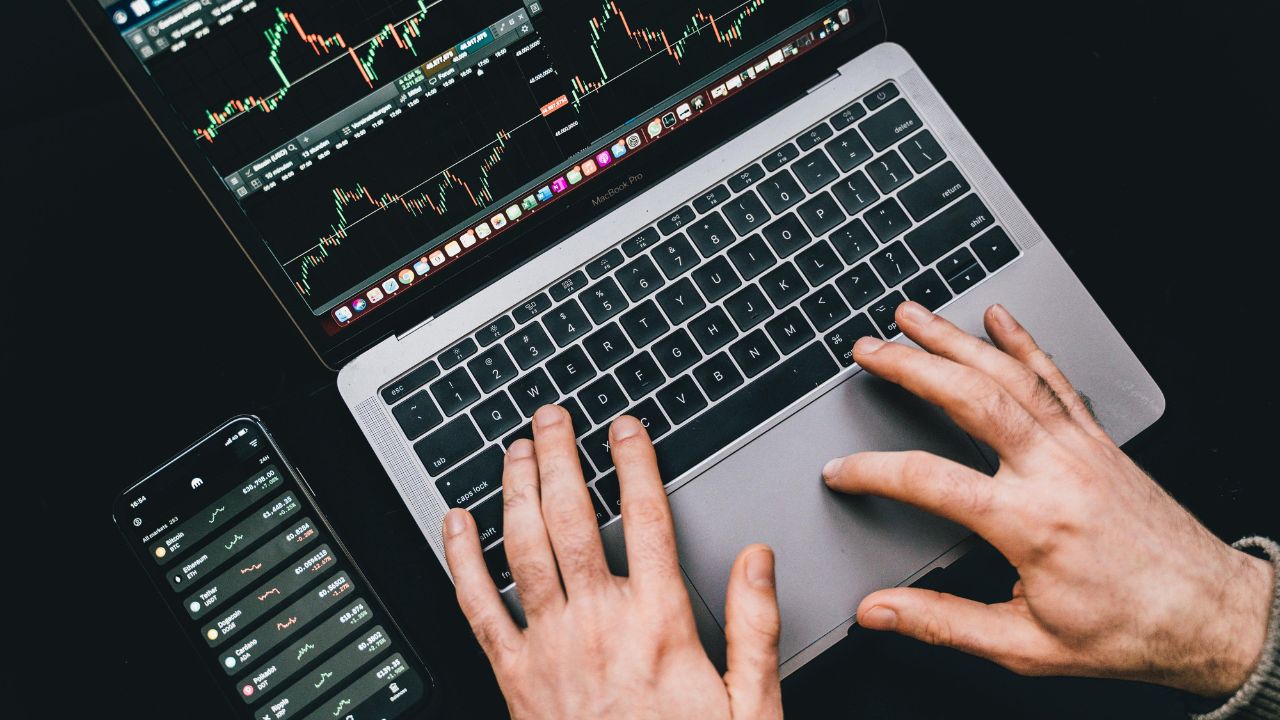Online stock trading has become increasingly popular. However, with this convenience comes the need for heightened security measures to protect your sensitive financial information and trading activities. The financial sector is a prime target for cybercriminals, and stock trading platforms are no exception. One powerful tool that every trader should consider is a Virtual Private Network (VPN). Let’s dive into why using a VPN is crucial for safeguarding your stock trading endeavors.
GET SECURITY ALERTS, EXPERT TIPS – SIGN UP FOR KURT’S NEWSLETTER – THE CYBERGUY REPORT HERE

What is a VPN?
A Virtual Private Network (VPN) is a service that creates a secure and encrypted connection between your device and the internet. It acts as a shield, routing your internet traffic through a remote server owned by the VPN provider. This not only hides your IP address but also encrypts your data, making it difficult for anyone to track your online activities or access your personal information. In essence, a VPN enhances your online privacy and security, making it an invaluable asset for anyone engaged in online trading.
Securing your connection
When you’re trading stocks online, you’re transmitting highly sensitive data across the internet. This includes your personal information, account details, and trading strategies. A VPN encrypts all of this data, making it virtually impossible for hackers or other malicious actors to intercept and decipher.
However, it’s important to note that while VPNs do improve security, they are not a complete solution. VPNs primarily protect data in transit but cannot prevent all types of cyber threats. For example, they don’t protect against phishing attacks, malware already on your device, or vulnerabilities on the websites you’re accessing.
For optimal security when trading stocks online, a VPN should be part of a broader cybersecurity strategy. This strategy should include using strong, unique passwords, enabling two-factor authentication, keeping software updated, and being vigilant against phishing attempts with strong antivirus software. Additionally, it’s crucial to use reputable trading platforms with their own robust security measures.
Preventing man-in-the-middle attacks
Without a VPN, your data travels in a relatively straight line from your device to your trading platform’s servers. This creates opportunities for cybercriminals to intercept your information through what’s known as a “man-in-the-middle” attack. A VPN creates a secure tunnel for your data, significantly reducing this risk.
Protection on public Wi-Fi
Many traders like to stay active on the go, which often means using public Wi-Fi networks. These networks are notoriously insecure and are prime hunting grounds for cyber criminals. A VPN adds a crucial layer of security when you’re trading from a café, airport, or hotel.

TOP 6 HIDDEN WAYS A VPN CAN SAVE YOU MONEY NOW
Maintaining anonymity
While anonymity might not seem crucial for stock trading, it can be more important than you think. In fact, maintaining a level of privacy in your trading activities can offer several significant advantages and protections. When your trading activities are visible, you become a potential target for scammers and fraudsters. These bad actors may use information about your trading habits to craft convincing phishing emails or social engineering attacks. By maintaining anonymity through a VPN, you reduce your visibility to these potential threats.
CAN I USE MULTIPLE VPNS ON MY DEVICES AT THE SAME TIME?
Hiding your IP address
Your IP address can reveal a lot about you, including your approximate location. By masking your IP address, a VPN helps prevent others from tracking your trading activities or using your location information for targeted attacks. However, It’s important to note that while VPNs can mask your IP address, they do not make you completely anonymous online. Other tracking methods, such as cookies and browser fingerprinting, can still identify users.
Avoiding targeted ads
Without a VPN, your internet service provider (ISP) can see your online activities, including your interest in stock trading. This information can be sold to advertisers, leading to an influx of targeted ads that might influence your trading decisions. A VPN keeps your browsing history private from your ISP.

Avoiding throttling
Some internet service providers may throttle connections to certain websites, including trading platforms, especially during high-traffic periods. A VPN can help you avoid this throttling, ensuring consistent, high-speed access to your trading accounts.
However, a potential drawback of using a VPN is that it can introduce latency due to the encryption process and routing through remote servers, which might affect high-frequency trading where speed is crucial.
Bypassing geo-restrictions
Some trading platforms or financial news sites may be restricted in certain countries. A VPN allows you to bypass these geo-restrictions, ensuring you always have access to the tools and information you need. However, the use of VPNs to bypass geo-restrictions may violate terms of service or local laws in some jurisdictions. It’s important to check the legality of using VPNs for trading in your specific region.

Securing financial transactions
When you’re moving money in and out of your trading account, a VPN adds an extra layer of security to these transactions. This is particularly important if you’re dealing with large sums.
Preventing account takeovers
Cybercriminals often attempt to gain unauthorized access to trading accounts. By encrypting your login credentials and other sensitive data, a VPN makes it much harder for these bad actors to compromise your account.

Choosing the right VPN for trading
Not all VPNs are created equal, especially when it comes to stock trading. Here are some factors to consider:
Speed and reliability: Look for a VPN that offers high-speed connections and minimal downtime. In the fast-paced world of stock trading, even a few seconds of delay can make a significant difference.
Strong encryption: Ensure your chosen VPN uses robust encryption protocols like AES-256. This military-grade encryption is currently considered unbreakable.
No-logs policy: Choose a VPN provider that has a strict no-logs policy. This means they don’t keep records of your online activities, adding an extra layer of privacy.
Kill switch feature: A kill switch automatically disconnects your internet if the VPN connection drops, ensuring your data is never exposed.
Use our top VPNs to protect your stock trading activities
Are you looking for a VPN provider that can help protect against your stock trading activities? ExpressVPN and Surfshark are both trusted VPN services that prioritize your privacy and security and are available on a wide range of platforms, including Mac, Windows, iOS, Android, and popular browsers.
1) ExpressVPN: ExpressVPN is known for its speed, reliability, and strong privacy features. It offers ultra-fast servers in 105 countries, supports P2P sharing, and allows up to 8 devices to connect simultaneously. Available on a wide range of devices, it features a simple setup that takes less than 2 minutes. ExpressVPN’s strict no-log policy ensures your data is never stored, and all servers run on RAM, so no user activity is saved. With 24/7 live customer support and a 30-day money-back guarantee, ExpressVPN is a top choice for privacy-conscious users
CYBERGUY DEAL: Save 48% now with CyberGuy’s exclusive offer – you can get 3 extra months FREE with a 12-month plan. Try 30 days risk-free.
2) Surfshark: Another excellent option, Surfshark provides strong security features at an affordable price. Like ExpressVPN, Surfshark operates under a strict no-logs policy and uses advanced encryption to keep your data safe. One standout feature is Surfshark’s ability to support unlimited devices on a single account, making it ideal for families or users with multiple gadgets.
Both VPNs offer top-notch security, ensuring that your browsing history, IP address, and online activities remain private.
Best practices for Using a VPN while trading
Even with a VPN, it’s important to follow some best practices:
1) Always connect to your VPN before logging into your trading account.
2) Use a different VPN server for each trading session to further enhance your privacy.
3) Regularly update your VPN software to ensure you have the latest security features.
4) Don’t forget about other cybersecurity measures like using strong passwords and enabling two-factor authentication on your trading accounts.
Kurt’s key takeaways
While a VPN isn’t a silver bullet for all cybersecurity concerns, it’s an essential tool for anyone serious about protecting their online trading activities. By encrypting your data, maintaining your anonymity, and ensuring reliable access to trading platforms, a VPN can give you the peace of mind you need to focus on what really matters – making smart investment decisions
Have you ever experienced any security breaches or scams while trading online, and how might a VPN have changed that experience? Let us know in the comments below.




